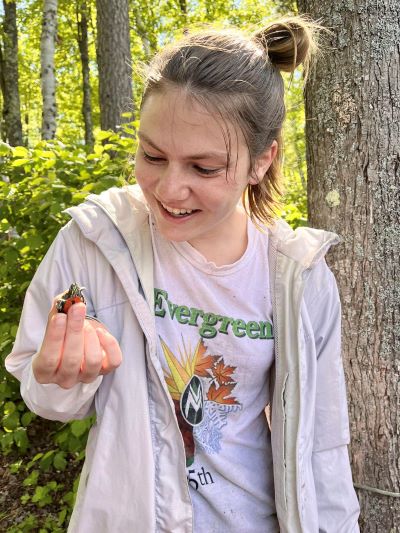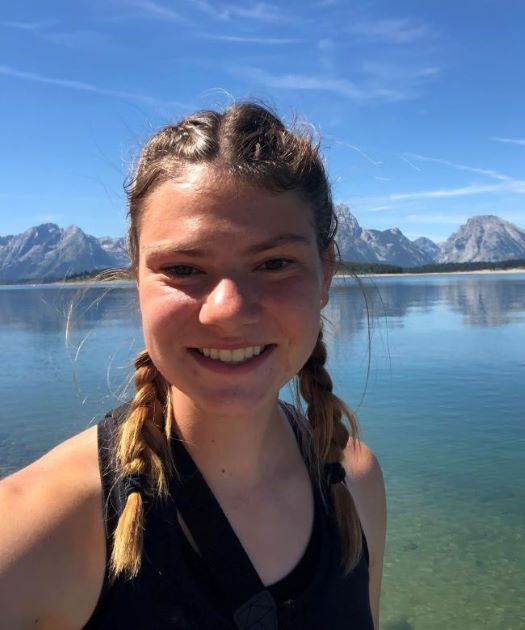by Barbara Dixson

Abby Mueller is a current co-leader in the Gray Squirrel Project, and when she graduates next year, she’ll have accomplished three full years of field experience. “It’s been a lot of fun,” Abby tells me, “doing research, getting out in the field, and getting really great hands-on experience handling wildlife.” Abby always wanted to work with mammals: the project confirmed that certainty.
When I ask Abby what she has learned from the project, she quickly gives me a list. It’s the first project for which she’s been a co-leader, and taking a leadership role has been powerful. She’s learned organizing, she’s had the chance to work with volunteers, she’s gotten to handle squirrels, and she’s been free to explore her own interests. Abby is intrigued by animal behavior. She wonders how squirrel behavior changes before, during, and after the trapping season (which is also the mating season). How do foraging and alert behaviors vary? She hopes to delve into these questions.
I had the good fortune to see Abby at work in the field and to observe her skill in working with the day’s trapped squirrels. With gentle strength, she held the animals securely, measured and weighed them deftly, and inserted ear tags with no hesitation or fumbling. As she parted fur with a soft touch to identify the squirrel’s age, it was easy to see how powerfully she is drawn to working with animals.
Finally in our conversation, I asked Abby how the Gray Squirrel Project has, overall, affected her. It’s affirmed her interest in doing research and working with mammals. It’s given her experience with and an appetite for presenting at conferences, writing abstracts, making posters, all the dissemination dimensions of research. And she’s found especial pleasure in working with the volunteers. It’s great, she says, “when there’s a new volunteer, and they’re so excited! It’s fun to share that with other people.”
